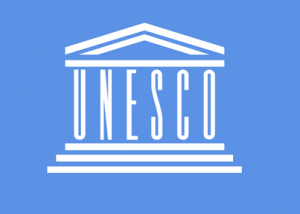UNESCO calls for promotion of STEM education in Africa
 The United Nations Educational, Scientific and Cultural Organisation (UNESCO) has urged African countries to promote Science, Technical, Engineering and Mathematics (STEM) education to speed up the continent’s socio-economic development.
The United Nations Educational, Scientific and Cultural Organisation (UNESCO) has urged African countries to promote Science, Technical, Engineering and Mathematics (STEM) education to speed up the continent’s socio-economic development.
Mr Tirso Dos Santos, the UNESCO Country Representative in Ghana, said the organisation, being the only specialized UN agency with science as one of its core mandates, realizes that promoting STEM and Innovation would require cooperation at various levels.
“We therefore encourage and pursue sub-regional, regional, south-south and north-south collaboration in order to solve pressing developmental challenges,” Mr Santos stated in Accra at a Regional Consultative Workshop on Strengthening Cooperation in STEM Education in West Africa.
The two-day workshop was organised by UNESCO in collaboration with the Directorate of Technical Cooperation in Africa (DTCA) under the Ministry of Foreign Affairs of Nigeria and the Ecowas Parliament.
It was attended by 35 participants from seven out of the eight countries covered by the UNESCO Multisectoral Office in Abuja.
The participating countries include Ghana, Nigeria, Benin, Cote d’Ivoire, Guinea, Liberia, and Togo.
Mr Santos said most countries in West Africa might struggle to attain the Sustainable Development Goals (SDGs) unless there was substantial investment in science education, promotion of scientific research, cooperation in education and development of human resource capital in the region.
“Indeed, in formulating the agenda 2030, science cuts across almost all of the 17 SDGs.
“Science has therefore, been recognized as being critical to meeting the challenge of sustainable development,” he said.
He explained that science was universal and cut across cultural and political borders, stating that “this is in no way to say that humanities or the arts are less important than the sciences”.
“The point here is that we all need to recognize what science could give to society and to harness that for our own good,” he said.
He said STEM education and capacity building should be promoted in low and middle income countries, particularly in cases where a widespread appreciation of the benefits and the resources for STEM education were lacking.
Mr Santos said: “To reduce the dependence on industrialized nations, we need to be scientifically literate.”
Mr Mahama Ayariga, Ghana’s Minister of Environment, Science, Technology and Innovation, in a speech read on his behalf by Mr John K. Arthur, a Director at the Ministry, said “although STEM education has become a priority in most parts of the world, sadly we cannot say the same for our sub-region”.
He said in Ghana’s case, a report by the National Council for Tertiary Education showed that only 39 per cent of the 127,502 students who were admitted to the eight public universities in the 2012/2013 academic year were admitted to science-related programmes.
He said this percentage was below the target of 60 per cent enrolment in science and technology-related disciplines for all universities in Ghana mentioned in the 2010-2020 Education Strategic Plan of the Ministry of Education.
He said Ghana had plans and policies in place to ensure that STEM education was supported, adding: however, the sad trend observed is that more and more students are fleeing from the study of science.”
Hajia Khadija Bukar A. Ibrahim, Nigeria’s Minister of State, Ministry of Foreign Affairs and Chairperson Presidential Inter-Ministerial Committee on the DTCA, in a speech read on her behalf, said STEM education was essential for accelerating the West Africa sub-region’s growth and development.
Mr Mohammed Kachallah, Acting Director General, DTCA, Nigeria Ministry of Foreign Affairs, gave an overview on “The Role of Secondary Education in Regional Integration and Development”.
He said there was an urgent need for the realignment of the curriculum as well as emphasises on the need to strengthen the teaching of STEM education in Africa.
Dr. Nelson Magbagbeola, Secretary General, ECOWAS Parliament, said in order to ensure a vibrant technology platform through STEM education, ECOWAS member-states must enthrone and sustain a culture of innovation and strengthen intellectual property systems.
Source: GNA
